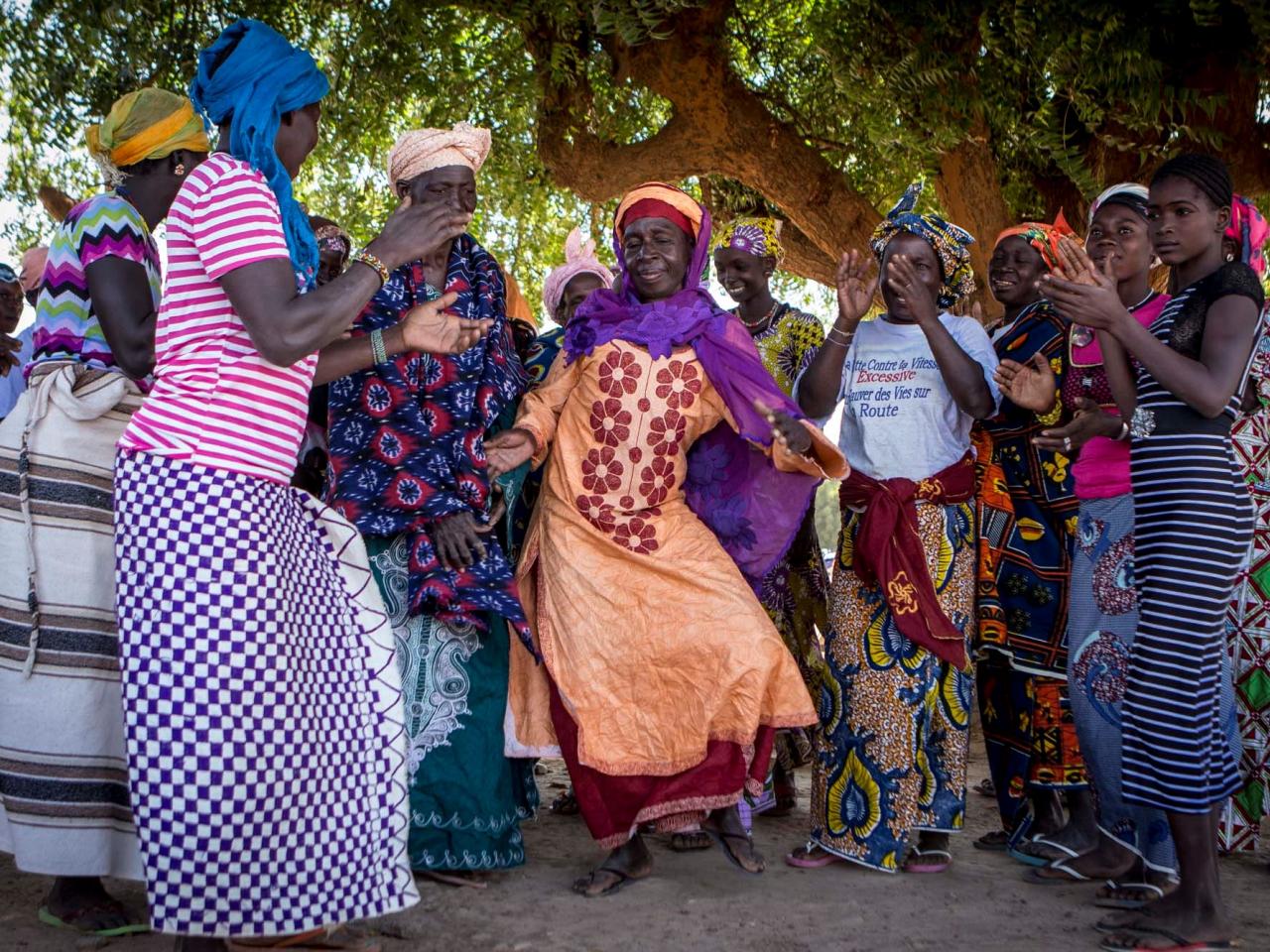The film helping to end female genital mutilation in Mali
Fifteen-year-old Assan* and her mother are part of a generational change. Assan and her elder sister underwent female genital mutilation (FGM) as infants but none of their younger sisters have, at their mother's insistence. Not only that, but her mother has set out to persuade her community to stop FGM too.
Throughout her childhood, Assan had FGM-related health problems that hampered her ability to move and caused her severe pain. Her mother searched for answers, but no one seemed to have them: no health expert had any idea what was wrong. Until a film was shown in her neighborhood in Sikasso, southern Mali, about women and girls aged between 15 to 49 who have undergone cutting.
The way FGM is carried out can lead to complications, with 96 per cent of cutting being performed by traditional practitioners using basic blades and no anaesthetic. Young girls can bleed to death, child birth is more dangerous due to haemorrhaging and cuts often remain prone to infections. The memory of the cutting alone can be damaging, and these issues of trust and pain are rarely, if ever, discussed.
It does not help that the subject is considered taboo, so those who are most affected do not discuss it or the physical or psychological consequences. Transforming the situation is challenging as the practice is deeply rooted in cultural and social norms. More than 85 per cent of women and girls in Mali believe FGM should continue, though the most commonly stated reasons are based on the social consequences of not performing FGM rather than a belief its benefits. A woman who is not cut is considered unclean and unhygienic. She would find it difficult to marry and be socially excluded. Many also believe it is a requirement of Islam.
Like others, Assan’s mother went to see the film out of curiosity and was shocked to discover that there could be severe health consequences to cutting. She returned to view the film several times, even walking to other areas of the city to see it, bringing her sister and friends. “After seeing the consequences, I have real fear of cutting and now I do not cut my children.” As a result of the film, Assan was the last of her daughters to be cut. Realizing that cutting might be the reason for her child’s health problems, she went to the Regional Direction for the Promotion of Women, Children and the Family, who were finally able to refer Assan to the medical services she needed.
It was not just the cutting that Assan’s mother stopped. Using the information that she had learnt from the film, she was able to persuade her husband, against the advice of his peers, to stop Assan’s proposed early marriage. The film is part of UNICEF’s mobile cinema initiatives, where educational films are screened directly in communities across Mali, supporting an information-sharing process on the negative effects of cutting and early marriage. Sometimes, it can be the first time parents and community leaders have heard of any negative consequences of cutting or early marriage. Like many viewers in Mali, Assan’s mother was pleased the film revealed the consequences of cutting and the health risks a girl faces when she is married and gets pregnant at a young age. The situations shown in the film reminded her of health issues with other family members and she started telling others what she had learnt.
But it has not been easy for Assan's mother. Many people tried to convince her and her husband to continue cutting their children and to marry their daughters early. People told her husband not to listen. Because the film shows true-life situations and presents evidence, Assan considers it vital that more people see the film. “There is a big difference between those who have seen the film and those who have not. Those who have seen the film have learnt a lot. Those who have not seen it, if you explain what you learnt, they will never believe you as they have not seen it themselves.”
UNICEF’s decades-long work with the government and civil society to ensure girls in Mali benefit from their right to health, education, well-being and the ability to develop their full potential is now being strengthened through the Spotlight Initiative. Initiated by the European Union and the United Nations, Spotlight Initiative is a multi-country initiative that seeks to eliminate violence against women and girls by changing not just laws and institutions, but also social norms and beliefs leading to harmful practices by working with community and women’s movements, and improving services and data. The Initiative will increase access to vital information on the consequences of early marriage and cutting through films, animations, and adolescent engagement. In Mali, Spotlight Initiative is being implemented by UNICEF, UNFPA, UN Women, UNHCR, and UNDP.
Assan herself finds it too hard to remember the pain and humiliation of her early health problems. She does want to get married, but only once she has finished school and set up her own business. She is confident perceptions and attitudes are changing and that more and more girls will be protected against FGM and early marriage going forward. "I cannot speak for the older generation,” she explains, “but my generation think cutting and early marriage are wrong.”
In Assan's family, the line has already been drawn. She is the last of her siblings to have been cut and the last girl to have an early marriage suggested to her. Even if she cannot speak for the older generation, she is taking up a new role leading the younger generation.
*Some names have been changed
By Anne Kennedy. Originally published by UNICEF.

